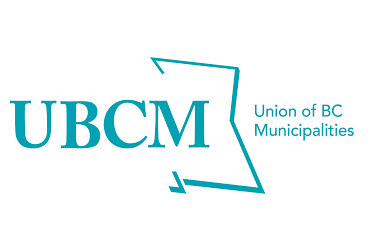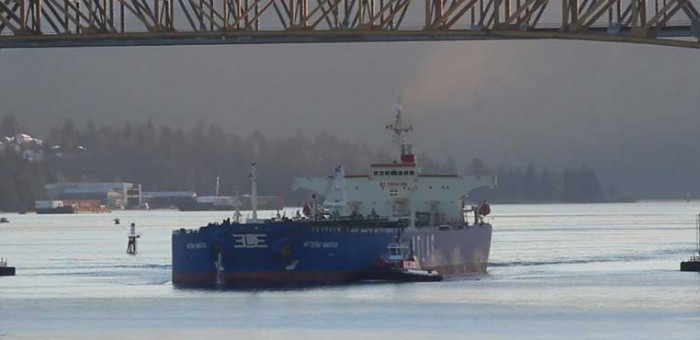Issues & Community Blog - Andrew Weaver: A Climate for Hope - Page 18
Speech to delegates at the 116 th Union of BC Municipalities Convention
Today I was afforded the opportunity to present to delegates at the 116th Union of BC Municipalities Convention in Vancouver. Below I reproduce the complete text (with links) of this speech.
Text of Speech
It’s a great honour for me to be able to once more address you, the delegates to the UBCM.
You know, two weeks ago, and just 15 minutes before I was supposed to give a keynote at the Canadian Propane Association BC Seminar in Langley, I was hit with acute vestibular neuritis which put me in hospital for 5 days.
The irony is not lost on me…but you can imagine how grateful I am to be up and on stage here today.
While I am expected to make a complete recovery in a few weeks, I had to limit my activities which meant that my scheduled meetings with local government representatives this week were all cancelled. For that I sincerely apologize.
In the audience today there are many politicians.
Some of you lean left.
Some of you lean right.
In my case, the vestibular neuritis has left me tilting right and left on a second by second basis but I look forward to stabilizing somewhere in the middle shortly.
The one silver lining in all of this is my incapacitation couldn’t have come at a better time… right at the start of the 2019 Rugby World Cup!
————
There’s a lot of new faces in the crowd this year so for those of you who don’t already know my background I’d like to add that prior to joining the legislature in 2013 as the lone BC Green MLA, I was the Lansdowne Professor and Canada Research Chair in Climate Modelling and Analysis at the University of Victoria.
I served as a Lead Author in the last four United Nations Intergovernmental Panel on Climate Change Assessment reports.
I ran for election in 2013 as I could no longer watch what was happening to our province from the sidelines.
I ran as a point of principle, never actually expecting to get elected (after all no Green Party politician anywhere in Canada had ever before been elected at the provincial level).
I ran on a platform of evidence-based decision-making to counter the decision-based evidence-making rhetoric espoused by so many of our political leaders.
I ran on a platform of ensuring that we focus on the long-term consequences of our decisions instead of solely being fixated on what it would take to get reelected.
I ran to offer British Columbians a vision of social, economic and environmental prosperity grounded in the incredible opportunity afforded us by the challenge of global warming.
And here we are today, two years after the 2017 election delivered a minority government with my two BC Green Caucus colleagues and I holding the balance of responsibility. It’s been a remarkable journey.
Keeping with this year’s theme of ‘resilience and change’, I want to speak to you both as a climate scientist and as a political leader.
In doing so I hope to convince you that each and every challenge our province faces needs to be embraced and thought of as an incredible opportunity for innovation.
And innovation is the foundation of any modern economy.
First, the science.
Since we met last year, a number of sobering reports have been released:
The first was the 2018 IPCC special report in which the world’s leading climate scientists warned there are only a dozen years for global warming to be kept to a maximum of 1.5°C, beyond which even half a degree will significantly worsen the risks of drought, floods, extreme heat and poverty for hundreds of millions of people.
A few months later, Canada’s Changing Climate was published by the Federal government.
The report noted that Northern Canada is warming at twice the global rate and highlighted BC as being particularly vulnerable to drought, glacial loss, sever wildfires, and to sea level rise, which will salinate farm land.
Shortly after that we had the report from the UN Intergovernmental Science-Policy Platform on Biodiversity and Ecosystem Services that stated, in stark terms, that we are in the midst of an extinction crisis with a million species likely disappearing within decades.
The consequences of which would be devastating for ecosystem stability and food production.
Then we got the report from the UN’s special Rapporteur on extreme poverty and human rights.
Professor Alston said the world is on course for “climate apartheid,” where the rich will buy their way out of the worst effects of global warming and the poor will suffer. Even under the best-case scenario, he wrote, hundreds of millions will face food insecurity, forced migration, disease, and death.
Staying the course will be disastrous for the global economy and pull vast numbers into poverty.
Most recently, the province quietly released their Strategic Climate Risk Assessment for British Columbia.
In it, severe wildfires, seasonal water shortages, and heat waves are the three highest-ranked risks facing the province in terms of severity, magnitude, and likelihood. Ocean acidification, glacier mass loss, and long-term water shortages also top the list.
In the span of just a few centuries, Earth has made a transition from a past, when climate affected the evolution of human societies, to the present, in which humans are affecting the evolution of the climate.
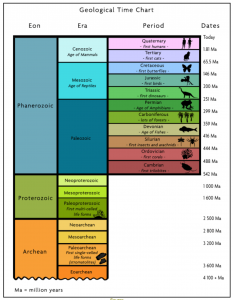 Starting in the late Paleozoic, more than 300 million years ago, and extending through Mesosoic (known as the Age of the Reptiles), the world’s great coal, oil and natural gas reserves were formed. In doing so, carbon dioxide was drawn down from the atmosphere over a period of tens of millions of years.
Starting in the late Paleozoic, more than 300 million years ago, and extending through Mesosoic (known as the Age of the Reptiles), the world’s great coal, oil and natural gas reserves were formed. In doing so, carbon dioxide was drawn down from the atmosphere over a period of tens of millions of years.
Today, we are turning back the clock by returning that carbon to the atmosphere in a matter of a few decades.
As I stated in last year’s address: elected leaders are at a pivotal moment in human history. We are responsible for deciding what path the future climate will take.
That is not something I say lightly. I feel the pressure of that responsibility in everything I do. It weighs heavily on me. But I know I am not alone in that and, while unpleasant, it’s also a good sign.
I can sense, for the first time in my career, that a change in the tide is coming.
In every challenge, there is opportunity. The greater the stakes, the higher the potential. British Columbians are eager for innovation and excited about building a sustainable economy.
Young people, in particular, have made this abundantly clear over the last year.
Millions of students, including many hundreds on the lawn of the legislature last Friday, are demanding elected officials protect their future.
You will die of old age, one sign read, I will die of climate change.
People are ready to support leaders who take climate action seriously.
Change is coming whether we like it or not, so let’s choose to be courageous.
To the opportunities I promised you earlier:
We are immensely fortunate to live in British Columbia. It is quite literally one of the best locations on the planet from which to navigate the climate related challenges ahead.
To start, BC has three strategic advantages over virtually every other region in the world.
- The quality of life and natural environment allows us to attract and retain some of the best and brightest minds from around the globe — we are a destination of choice.
- We have a highly skilled and educated workforce. Our high school students are consistently top ranked internationally. They are smart, well trained and they are ready to go to work. And we have exceptional post secondary institutions throughout our province.
- We have access to boundless renewable energy, fibre and water like no other jurisdiction in the world. We have incredible potential to create clean, renewable energy and forestry sectors to sustain our economy.
Transitioning to a carbon neutral world doesn’t mean going back to the dark ages. It means transitioning to a cleaner, sustainable society where economic, social and environmental concerns are central in all our decision making.
In fact, if we start right now, we stand a decent chance of transforming society without huge disruption.
What I am describing is not an impossible utopia. Every example listed is grounded in current economic trends, scientific evidence, and already established best practice.
We have so much to gain. It’s not just possible that the transition to a clean economy could create jobs. It is inevitable – Jobs that are inspired, important, and valuable. This shift can be the vehicle to deliver a more just, equitable, and healthy society.
To capitalize on these possibilities, we need to start planning beyond the next election cycle. We need to focus on building a new economy that works for all of us — not just the privileged few.
Policies must be based on principles and evidence, not political calculation and opportunism.
And as government leaders we must collectively do everything we can to develop policies that promote, rather than hinder innovation in or economy.
 Over the last two years, my team and I have been working with Minister Heyman to design CleanBC, our ambitious economic plan to build a thriving, climate-responsible and climate-resilient economy.
Over the last two years, my team and I have been working with Minister Heyman to design CleanBC, our ambitious economic plan to build a thriving, climate-responsible and climate-resilient economy.
With no silver-bullet solution to solving climate change, it is a collection of policies, incentives, targets, and regulations that will revive our economy and, if fully implemented, collectively achieve a 40% reduction in GHG emissions (from 2007 levels) by 2030.
It includes transitioning to 100% zero-emission vehicles by 2040, demanding far greater energy efficiency in both new and existing buildings, and investing significantly in training workers for a low-carbon economy.
Governments talk a lot about competitiveness, saying if we ask too much of companies they will leave.
But I have never understood why we want to be competing with other jurisdictions who are willing to sacrifice their clean air, land and water or willing to commit human rights abuses, all in order to see who can extract their resources cheaper and faster.
I believe government should be playing a more active role in supporting the type of economy we want to build. Not simply managing the one we have, ignoring the challenges on the horizon.
I don’t want to drag BC into a race to the bottom by subsidizing the tired, and dwindling industries from the last century.
I want to compete in an entirely different arena – for who can be the best, leanest, most efficient, with the healthiest, happiest citizens.
Thoughtfully designed policies can send signals to the market and spur innovation.
Many companies in BC are already leading the way within their sector.
At the tech summit earlier this year, I had the opportunity to moderate a panel with a number of inspiring companies who are pushing the envelope – creating high quality jobs and harnessing the power of innovation to help us respond to the climate crisis.
MineSense, for example, is one I talk about often because they epitomizes the type of approach I am talking about. Their real-time, sensor-based ore sorting technologies allow them to analyze a rock face and determine whether it is economical to ship it to the crusher, or if it should be put aside for fill.
Investing in innovation has made their process smarter, more efficient, and saved them money along with saving water.
They can export their product, but they have also been able to export the technology.
 Another inspiring BC company is General Fusion. General Fusion is a truly groundbreaking company, at the forefront of clean tech.
Another inspiring BC company is General Fusion. General Fusion is a truly groundbreaking company, at the forefront of clean tech.
Based in Burnaby, they are working towards commercializing affordable, abundant, safe and emission-free electricity from fusion energy. This company has the potential to transform the world through transforming our energy supply.
Carbon Engineering is a Canadian company that has developed innovative technology to create liquid fuels from atmospheric carbon dioxide, who set up shop in Squamish a few years ago.
Their potentially revolutionary technology also has the ability to capture and sequester human produced carbon dioxide directly from the atmosphere. A BC company that has become famous around the world.
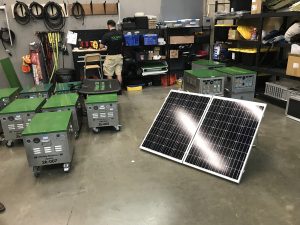 Then there are Portable Electric and Corvus Energy, two Vancouver-based success stories delivering mobile and marine electricity storage systems, respectively.
Then there are Portable Electric and Corvus Energy, two Vancouver-based success stories delivering mobile and marine electricity storage systems, respectively.
Portable electric’s battery power stations are a clean alternative to diesel generators are already being used to power everything from festivals to film sites.
And let’s not forget Unbuilders, a growing team of highly skilled tradespeople who have recognized opportunity in deconstruction.
Instead of demolishing old homes, they deconstruct them piece by piece and salvage vast quantities of historical old growth and other used building materials.
The sale of the residuals means it ends up costing less to deconstruct an old building than demolish it.
What an incredible example of innovation in the building sector. And it is all BC-based.
I could talk about my favorite BC-based, 21st Century companies all day, but noting the time, I’ll just mention one other.
Structurlam: What an amazing example of a thriving BC based business in the value-added forest sector.
 Their two main products Glulam and Crosslam are 100% engineered-wood laminations that are used as replacements in building construction for steel and cement, respectively.
Their two main products Glulam and Crosslam are 100% engineered-wood laminations that are used as replacements in building construction for steel and cement, respectively.
And they are committed to source lumber from BC-based companies like Kaleshnikoff Lumber Co. Ltd., a family owned business located in Tarry’s BC that was started in the late 1930’s by the children of Doukhobour immigrants who came to Canada in 1911.
These companies form the foundation of a strong, resilient, economy. Prosperity and jobs remain local as they they build on our strategic strengths ensuring that value added, technology and innovation are what we export.
Local governments, too, are already proving what is possible.
Last year, 50 local governments reported achieving carbon neutrality.
Last summer, the City of Surrey broke ground on the first community centre in North America to achieve Passive House certification.
In the District of Lillooet, community leaders implemented a plan to improve road safety for pedestrians and cyclists by expanding infrastructure and enhancing bike lanes.
Cities including Victoria, Vancouver, and Tofino are leading the way on taking action on single use plastics – a policy, the courts have made clear, that requires provincial leadership.
Paving the way for you to succeed is something I take very seriously.
I have been working with Minister Heyman on the Climate Change Accountability Act, to be tabled this fall, in the hopes that it, too, will bolster and support your ability to tackle this head on.
I look to you, as local leaders, to pick up the work I have started and make it better. Take in further, adapt it to the opportunities and needs in your community.
You know better than anyone how to be a champion for your constituents. I am asking you today, to be courageous, ambitious, and innovative.
Think further into the future and govern not just for your term, but for your children and grandchildren.
This is the moonshot of our generation.
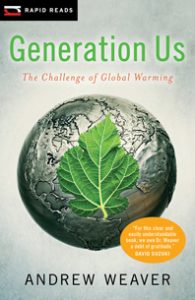 I’d like to end by reading the concluding paragraph of my book Generation Us: The Challenge of Global Warming that I wrote nearly a decade ago:
I’d like to end by reading the concluding paragraph of my book Generation Us: The Challenge of Global Warming that I wrote nearly a decade ago:
“Global warming has been branded an environmental problem. But it is really an economic and social problem. We’ve spent too much time living within a culture of global warming fear and denial. It’s time to recognize global warming for what it is: the most self-empowering issue we will ever face. Every consumer of energy is part of the problem. Every person is therefore part of the solution. We are entering an age of creativity and innovation unlike any that modern society has experienced before. Rather than fearing this change we need to embrace it. And the change starts in each and every one of our households. The time for Us is now.”
Thank you.
The Democracy & Me Art Contest is now open to all BC children & youth
The Legislative Assembly of British Columbia and the Lieutenant Governor of British Columbia have co-sponsored The Democracy & Me Art Contest.
 As noted in the contest poster to the right, it encourages K-12 students to create visual artwork that explores the importance of community and democracy.
As noted in the contest poster to the right, it encourages K-12 students to create visual artwork that explores the importance of community and democracy.
Contest winners will receive a trip to Victoria and their artwork will be displayed in the provincial Parliament Buildings.
Artwork must be submitted by January 31, 2020.
Please visit the The Democracy & Me Art Contest website for further details on how to submit your entry.
BC NDP government empowered to revisit Trans Mountain pipeline conditions
Today the BC Court of Appeal ruled unanimously that the BC NDP government must reconsider the conditions of the environmental assessment certificate allowing the expansion of the Trans Mountain pipeline. This is an incredibly important ruling as it means that the BC government now has the opportunity, which the BC Greens expect them to take, to reexamine the nebulous environmental conditions put in place by the former B.C. Liberal government. As I’ve argued numerous times in the past, politics clearly trumped evidence in the decision-making process of the NEB approval for the Transmountain pipeline. British Columbia now has the opportunity to ensure our coastal regions are protected.
As we move forward I am looking for the BC environmental assessment process to now properly consider the many issues I raised during the fundamentally flawed NEB process.
Below is a copy of the press release my office released following the BC Court of Appeal ruling.
Media Statement
B.C. NDP government empowered to revisit Trans Mountain pipeline conditions
For immediate release
Sept. 17, 2019
VICTORIA, B.C. – Today’s B.C. Court of Appeal’s unanimous ruling that the NDP government must reconsider the conditions of the environmental assessment certificate allowing the expansion of the Trans Mountain pipeline opens a path for additional environmental protections.
“The court has shown yet again the many shortcomings of the environmental assessment process that leaves our province facing the unacceptable environmental impacts that an expansion of the Trans Mountain pipeline threatens to bring to our province,” B.C. Green Party Leader Dr. Andrew Weaver said. “The B.C. NDP government has a responsibility to revisit the conditions placed by the former B.C. Liberal government.
“The negative long-term economic impacts related to increased emissions and the risk of oil spills associated with the Trans Mountain pipeline are indisputable. And British Columbians are already shouldering the environmental costs from climate change by way of our depleted oceans, stressed forests, shallow rivers, and dwindling resource economy.
“Tripling the capacity of the existing pipeline from Alberta’s oilpatch to Burnaby would pose an even greater threat to our future. A spill would be devastating to our environment, our coastal economies, and our tourism and fishery industries. Furthermore, the seven-fold increase in tanker traffic would pose significant threats to British Columbia’s already endangered Southern Resident Killer Whales. We ask again: Is the federal government ready to justify to Canadians why it is willing to herald the death knell of this iconic species?
“British Columbia’s economic future lies in the innovative, creative industries that are leading global economic growth, not in continued fossil-fuel infrastructure development that created the climate challenges that our communities and resource-based industries are struggling to cope with today.
-30-
Media contact
Macon L.C. McGinley | Press Secretary
B.C. Green Caucus
+1 250-882-6187 | macon.mcginley@leg.bc.ca
BC’s greenhouse gas emissions continue to climb in 2017
The BC NDP government released the 2017 greenhouse gas emissions data today. To no one’s surprise, BC’s 2017 GHG emissions increased by 1.2% from 2016 to 2017 to a total 64.5 million tonnes (Mt) of carbon dioxide-equivalent (CO2e), or roughly 13.1t CO2e per capita. Leading the way was a year-over-year 29% increase in emissions from natural gas flaring. Of course, this too is unsurprising as there is a glut of natural gas in the market and the predominant value from the drilling activity in the northeastern BC’s Montney Formation is in the liquids. A significant fraction of these liquids are shipped to Alberta where they are mixed with bitumen to form dilbit, the less viscous substance that can flow through pipelines. The gas, for which there is no market (and for which we have slashed royalty payments to the province and so literally give away), can be pumped back underground or burnt on site (flaring). And all of these activities are subsidized by the BC taxpayer to the tune of billions of dollars.
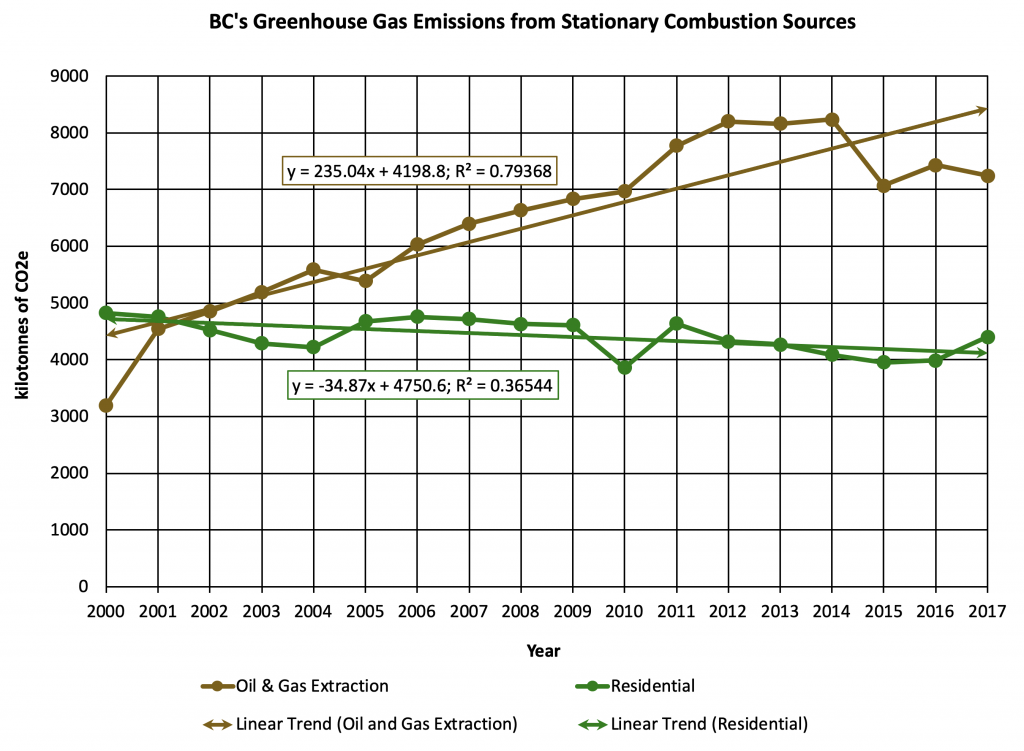
As I’ve outlined numerous times over the years on this blog site, with BC’s expansion into LNG, I do not believe the BC NDP government will be able to deliver a plan that will cut GHG emissions to 40% below 2007 levels by 2030. The premier claims that he will. I remain unconvinced.
Nevertheless, I remain very supportive of the CleanBC economic plan, which the BC Greens played an integral role in developing. However, I fear that it may be all for naught. As you will see in the above graph, the trend in emissions from the natural gas sector is on the rise, even without a single LNG facility in place. The trend in emissions from residential buildings is on the decline as we would hope.
Do we believe that it is fair for British Columbians to be burdened with the requirements and cost of reducing GHG emissions while we continue to offer subsidies and corporate welfare to the oil and gas sector? I think not for we have to work even harder as individuals to curb our emissions to account for the continued growth of emissions in the oil and gas sector.
Below I reproduce the media statement that I issued in response to government’s release of these new greenhouse gas emissions data.
Media Release
BC’s greenhouse gas emissions continue to climb
For immediate release
September 9, 2019
VICTORIA, B.C. – At a time when citizens are calling on their governments to ambitiously decarbonize – and every international panel has stated doing so is the only way to meet our agreed upon international climate targets- the provincial government’s recently released greenhouse gas data shows that BC, as of 2017, has failed to correct its emissions trajectory.
The data released today show total emissions in British Columbia increased 1.2 per cent from 2016 to 2017 to a total 64.5 million tonnes (Mt) of carbon dioxide-equivalent (CO2e), roughly 13.1t CO2e per capita. Emissions are now back up to 2007 levels when 64.8 Mt of CO2e was emitted, despite the BC NDP government last year committing to reduce emissions by 40% from this amount by the year 2030.
“We designed the CleanBC economic plan to start to tackle this challenge. Now that it is being implemented I expect we’ll start to see some slight emissions reductions, but it is clear we have a long way to go and we need to remain diligent in our commitment to our reduction targets,” said Dr. Andrew Weaver, leader of the B.C. Greens. “The timing of the release of these new emissions numbers is also particularly ironic as it comes on the heels of British Columbia announcing it’s sending a delegation to Japan to tout the potential export of highly subsidized LNG. As I’ve identified numerous times in the past, we cannot expand investment in the fossil fuel sector and hope to reduce our domestic emissions to promised levels.”
“British Columbians say they want to fight climate change. Looking at this data, they should be enraged that the lack of regulations in the oil and gas sectors means their footprint is two to three times larger than that of the average person living in the UK, Norway, New Zealand, Denmark and Sweden. The average British Columbia emits about 29 times the CO2e compared to an average citizen in Bangladesh.
“Our individual carbon footprint per British Columbian barely come in under our neighbours to the south, by a measly 12%. These numbers show us that we are not the concerned environmental stewards that we think we are, and it is because we have had governments that fail to regulate industry and fail to implement a vision for a new, green economy rooted in sustainable practices.”
This summer, government released its strategic climate risk assessment for British Columbia . Analyzing the climate risks likely to face British Columbia between 2040 and 2059, the report stated:
“British Columbia is already experiencing the effects of global climate change: average temperatures are increasing, sea levels are rising, and variable and extreme weather is becoming more frequent. Scientists expect these changes to accelerate and intensify in the years ahead, creating risks to society, natural resources, and ecosystems.”
British Columbia is contributing to global emissions rising when they need to be falling dramatically. The UN Intergovernmental Panel on Climate Change (IPCC) has repeatedly reported that carbon pollution needs to be cut by 45 percent by 2030 if we are to stay below 1.5C warming, beyond which even half a degree will significantly worsen climate change impacts and drag hundreds of millions of people into poverty.
“Now is not the time to protect the status quo or invest billions in expanding the oil and gas sector,” Weaver said. “Now is the time to rise to the challenge before us. Climate change is an immense risk if we don’t do anything about it. But it is also an incredible opportunity if we act. We can- and must- build cleaner and healthier communities and vibrant, resilient, sustainable economies.”
CleanBC was developed in collaboration with the BC NDP government and supports the commitment in the Confidence and Supply Agreement to implement climate action to meet B.C.’s emission targets.
Quick Facts
In 2016, the most recent global data available from the International Energy Agency, the United Kingdom’s per capita emissions were 5.65t CO2e, New Zealand’s were 6.45t CO2e, Norway’s were 6.78t CO2e, Denmark’s were 5.84t CO2e and Sweden’s were 3.83t CO2e. For comparison, per capita emissions in Bangladesh were 0.45t CO2e and in the United States were 14.95t CO2e.
This puts the average British Columbian’s carbon footprint 2.3, 2.0,1.9, 2.2 and 3.4 times larger than that of the average person living in the UK, Norway, New Zealand, Denmark and Sweden, respectively.
-30-
Media contact
Macon L.C. McGinley, Press Secretary
B.C. Green Caucus
+1 250-882-6187 |macon.mcginley@leg.bc.ca
BC Green caucus celebrates equitable access to menstrual products for students
Great Victoria School District officially launched its initiative today to provide free access to menstrual products for students. Ensuring equitable access to menstrual products is an important issue long advocated for by groups like the United Way Period Promise campaign, and I am proud to have played a part in helping move this initiative along.
As you will see from my Question Period exchange the Minister of Social Development and Poverty Reduction:
“We all expect when we enter a public washroom that toilet paper is readily available and free. Why that isn’t the case for menstrual products is a very good question. One, I suspect, that if men had a menstrual cycle, we wouldn’t be asking today.“
Below I reproduce our media statement celebrating the BC Government and Victoria School District’s announcement.
Media Statement
BC Green caucus celebrates equitable access to menstrual products for students
For immediate release
September 5, 2019
VICTORIA, B.C. – Today the BC Green caucus is celebrating the official launch of the Greater Victoria School District’s initiative to provide free access to menstrual products for its students.
“Ensuring equitable access to menstrual products is an important issue long advocated for by groups like the United Way Period Promise campaign, and I am proud to have played a part in helping move this initiative along,” said B.C. Green Party Leader MLA Andrew Weaver.
In March, Weaver asked Minister of Social Development and Poverty Reduction, as well as the Minister of Education, how the upcoming poverty reduction strategy will ensure that all children and youth have equal access to menstrual products. One month later, government announced it would require all public schools in the province to provide free menstrual products in school washrooms.
“In a minority government, a key part of our role is to bring new ideas to the table, advocate for great ideas already out there, and work with government to inspire them to act. In this case, we are thrilled at the outcome,” Weaver said. “No student should feel restricted in their ability to participate in lessons or sports because they lack access to a basic need.
“Protecting children from harm -whether it be stigma or abuse- and advancing gender equity have been two areas in which the B.C. Green Caucus and B.C. NDP clearly agree. Making schools and society safer and more equitable for all of our children is a nonpartisan pursuit that unites British Columbians.”
A B.C. Green Caucus bill amending the Residential Tenancy Act garnered tripartisan support this May and passed with full votes from the NDP and Liberals. The bill provides renters who are victims of violence associated with their home, or whose children are victims of violence, to break their fixed term lease and seek safety.
Also in May, B.C. Greens, alongside stakeholders and LGBTQ2+ rights advocates, tabled legislation that would ban the abusive practice of conversion therapy.
“We hope government continues to show support for the children of British Columbia this fall by working with our caucus to ban so-called conversion therapy,” Weaver said.
-30-
Media contact
Macon L.C. McGinley | Press Secretary
B.C. Green Caucus
+1 250-882-6187 |macon.mcginley@leg.bc.ca

